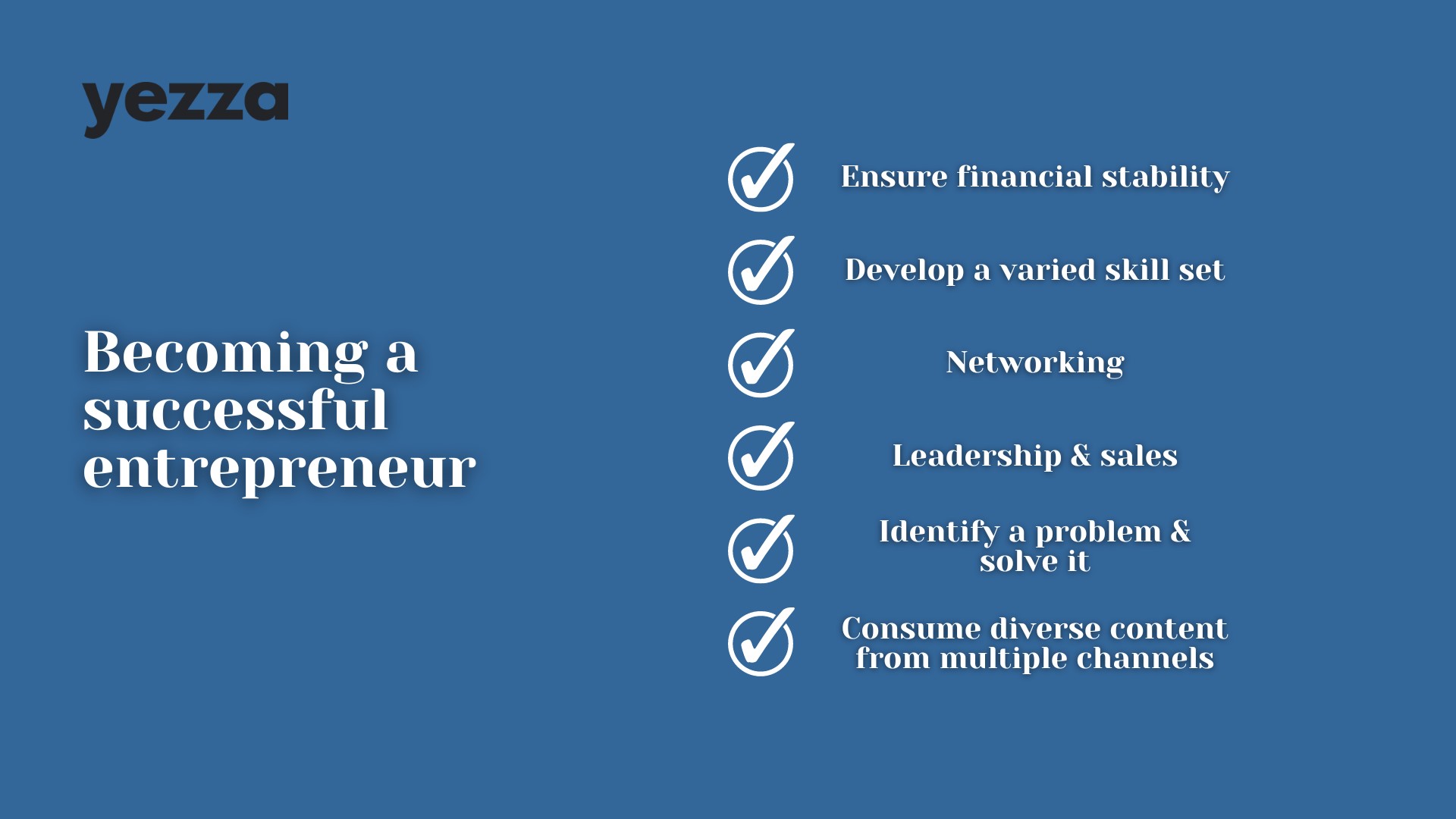If you’re reading this, you’ve most definitely heard of the word entrepreneur. And while you might be familiar with it and what it generally means, you could still find it a bit difficult to really explain it to people, or even to yourself. We’re here to give you some detailed explanations into who entrepreneurs are and what they do.
What is an entrepreneur?
Entrepreneurship is a very versatile career field, with the readiness to develop, organize and run a business empire while facing uncertainties in the anime of profit. Entrepreneurs are those who find passion in doing so – establishing a new business venture, administering the company, bearing most of the risks, and when succeeding with their startup, enjoy the lion’s share of the profits.
Oftentimes, entrepreneurs are looked to as innovators, sources of new ideas, bringing those ideas to the market and possibly even initiating a market-wide revolution with their ingenuity. Therefore, entrepreneurs are commonly looked up to for their key role in economies and for their daringness to face risks and losses to see their ideas through.
Types of entrepreneur
You can call almost anyone who takes the plunge into the business world on an idea as an entrepreneur. People can also overgeneralize entrepreneurs into just a single stereotype of sorts with the perception that they’re all the same. But as a matter of fact, entrepreneurs actually come in different types with differing goals.

1. Innovators
These are the entrepreneurs that come up with those brand new great ideas and make a viable business out of them. Innovators care more about the impact their products will have on society rather than the money (although money does come out of it, so it’s not so much that it’s not the focus, but rather a lesser focus in comparison). They can be extremely passionate and motivated but not necessarily the best at running a business as they are at generating ground-breaking ideas.
2. Researchers
Researchers are a more calculating group of entrepreneurs. They take their time researching the relevant info related to their grand idea so that all angles and aspects of it are analyzed. They rely more on data and facts rather than their intuitions. This makes them start businesses only when their chances of succeeding are high and more likely.
3. Specialists
The specialist is analytical and risk-averse. Through education and apprenticeship, they have a strong skill set in a specific area. A specialist entrepreneur will build out their business through networking and referrals. Because of this, they tend to grow at a slower pace.
4. Opportunists
Opportunistic, optimistic, and at times, impulsive, these types of entrepreneurs are more interested in profits and building wealth, being attracted to ideas that can get them residual income streams. They come with the ability to pick out well-timed financial opportunities to match. They’ll usually get on board a business at the right time, stay on during the growth phase, and exit at its peak.
5. Buyers
Wealth is what defines the buyer entrepreneurs. They have the money at the ready and skillfully buying promising businesses. Buyer entrepreneurs identify a business and assess its viability. They then proceed to acquire it and find the most suitable person to run and grow it further.
6. Imitators
Imitating entrepreneurs are the types to copy certain business ideas and improve upon them. They are always looking for ways to make a particular product better so as to gain an upper hand in the market and be the better brand for consumers. You could say imitators are part innovators and part hustlers who don’t stick to the terms set by other people and have a lot of self-confidence.
Characteristics of entrepreneurs
Whatever type of entrepreneur you see yourself, or other people as, they do share similar traits that make them the successful business folk that they are, setting themselves apart from the average individual.

1. Innovative
Successful entrepreneurs are the genesis of ground-breaking ideas and innovations. They profit out of being trendsetters or simply giving people easier, more efficient and economical ways to do and consume things through better products.
2. Visionaries
They have clear visions of their business ventures and aims. They know what they want to be, and who they want to be for themselves and for society at large. Vision keeps them motivated and equips them with the endurance to move forward.
3. Leadership quality
Being a good leader is paramount to running a business empire. Turning promising ideas into reality take a lot of resources and people. Entrepreneurs have to impart motivation and guide employees on the right path for the company’s success.
4. Flexible
Even the greatest ideas morph over time. The very nature of entrepreneurship is uncertainty. So entrepreneurs have to be flexible and adaptive to changes. They need to be ready to embrace change and at times even promote it.
5. Courageous
A level of anxiety can come from uncertainty. Entrepreneurs should be brave individuals to take on challenges and risks head-on. As the saying goes, no pain no gain. Entrepreneurs might always come off as super rich and living the life, but it takes a lot of fear-facing to get there.
6. Communicator
Communicating well is of the utmost importance when running a business. From conveying your ideas and strategies to potential investors to sharing your business plan with your employees to negotiating contracts with suppliers and to selling your brand to consumers. All these require successful communication skills.
7. Open-minded
Every circumstance can be an opportunity and beneficial use for the company. Correlating with being flexible and adaptive, an entrepreneur acknowledges market shifts and consumer preferences to be ready for change. Every brand needs to evolve and to do that leaders should be open-minded.
8. Knowledgeable
This probably goes without saying. You can’t just go into building a successful brand empire blind and ignorant. Implementing a sound business strategy, knowing your target market, your financials (analytics and strategies), your competitors, and your strengths and weaknesses, will allow you to maneuver the difficult landscape of running a business.
What does an entrepreneur do?

Entrepreneurs do a number of things in a business. Most don’t sit a round watching their bank balances balloon. Some of the things that an entrepreneur could do include:
1. Create a business plan
As the brains of the operation and as the head of business endeavors, often time entrepreneurs would be the ones to facilitate the creation of business plans. As it is their vision that drives the company, business plans are usually what the entrepreneurs would have a heavy hand in.
2. Hire labor
Commonly, entrepreneurs get to decide the best people for the job and to be a part of their dreams. Entrepreneurs can have a say in hiring talents and labor to help grow the business further. Hiring new employees is also a way to distribute tasks and responsibilities so you can free up time for other more pressing work.
3. Managing resources
Resource management is also something that entrepreneurs tend to do. They get to decide where and how to expand the company and use the company’s finances. It’s also up to the entrepreneur to decide how their employees manage resources accessible to them.
4. Financing
Money is after all very important. While entrepreneurs will still have dedicated financing teams and accountants to help out, they still play a part in determining the financial direction of the company. It’s important for entrepreneurs to keep tabs on the business’ financials as they’re the ones who would be pitching the company’s prospects to potential investors.
5. Manage the business
Overall, as the CEOs and owners of the brand, entrepreneurs are the ones to manage the general day-to-day functions of the company. They may delegate work to others, but ultimately they decide on the direction of the company and what to do with the business.
How much does an entrepreneur make?
Yes, it is true that you can correctly assume that entrepreneurs make a lot of money for themselves through their businesses. However, it’s not that straightforward to say what an average entrepreneur brings home annually. It’s dependent on the business and market and the entrepreneur’s skillful maneuvering.
The good news is that the opportunity to earn above the average (whatever that may be) is always there. But most entrepreneurs don’t choose this career to make fast money. It takes years of experience and excellent marketing to earn top dollar. When you grow you can expect your salary to do the same.
How to become a successful entrepreneur
Many aspiring entrepreneurs succeed and many more fail. While there isn’t any one strategy or trait that can definitely ensure entrepreneurial success, nor is there any all-encompassing measurement, these could still be some aspects to help you be a successful entrepreneur:

1. Ensure financial stability
Always know where and how you’re generating income for the business. Mind your expenses and investments. Financial stability is critical to the business’ stability in general and its long life.
2. Develop a varied skill set
You would have to deal with a lot of things to achieve success in this field. Having a variety of skills to cope with different problems and obstacles and people is essential to instill confidence in what you’re selling.
3. Networking
Engage and establish connections with the right people and the right partners. Always pursue other potential partners and businesses and fellow entrepreneurs to build a wide network to get you through some tough times ahead.
4. Leadership and sales
Being in a managerial position, you should have strong leadership skills. You’ll play a vital role in influencing team members and setting goals. Sales experience is equally as important. For revenue to keep flowing in you’ll have to consistently draw in new leads while retaining already in place clients and keep your customers loyal.
5. Identify a problem and solve it
Again, we say that entrepreneurship is not such a smooth sailing experience. You’ll come across problems and issues that could threaten your business. Identify the problem and know how to address it. If you can get a catch of the problem earlier on before it can get worse is even better.
6. Consume diverse content from multiple channels
Just because you get to the top or where you want to be, doesn’t mean that you have to stop learning or can’t find something someone new to learn from. Seek out new knowledge and skills when you can. Continue to learn more so that your new insights can help expand your brand more.
Achieve success with us
When you’re confident of your potential to be an entrepreneur at any level, be it you have that next great idea or you have something better for society, consider letting us help you reach your future loyal customers! Get selling as many products as you want and do so while you get some shut-eye!





Leave a Comment